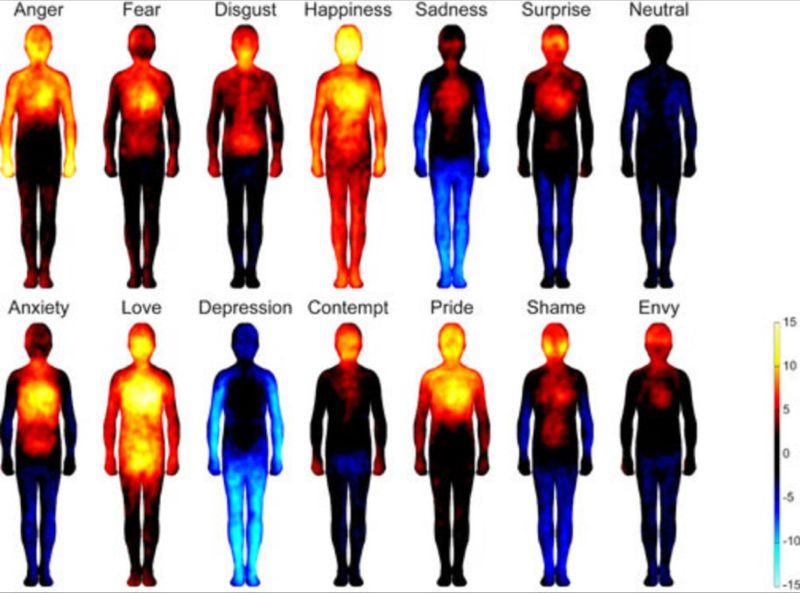Where do you feel anger in your body?
Emotions adjust our mental and bodily states in response to the environment - and these sensations arising from bodily changes are foundational to our emotional experiences.
Research by Professor Lauri Nummenmaa at Aalto University in Finland revealed how emotions are literally experienced through the body.
The researchers found that the most common emotions trigger strong bodily sensations, and the bodily maps of these sensations were topographically different for different emotions.
The sensation patterns were also consistent across cultures, highlighting that emotions and their corresponding bodily sensation patterns have a biological basis. "These results show that conscious feelings stem from bodily feedback," explains Professor Nummenmaa.
One of the tasks I'll often give leaders is to begin paying attention to where they feel an emotion in their body. It always raises an eyebrow (where do you notice skepticism shows up in your body?)
Professionals ranging from top athletes and performers to elite military units have long known the importance of distinguishing and managing bodily emotions.
Two common emotions worth distinguishing for leaders are anxiety and anger.
Anxiety is a self-created experience of fear that comes from focusing on the future. Anger is an often instantaneous response to a perceived attack, betrayal, or mistreatment.
Interestingly, the sensation map below shows that while anxiety mostly registers in the head and heart, anger strongly activates the hands. A distinguishing attribute of anger is the instinct to take action.
Anger can be a great teacher when you recognize and distinguish it from other threat-response emotions. It often signals that someone or something has crossed a boundary or violated a value. It's the sentry standing guard over our emotional homeland.
When you notice anger in your body, ask yourself, " What do I value here? What must be protected or restored?
Like with most things, the first step is awareness.
Image source: Professor Lauri Nummenmaa, Aalto University.



